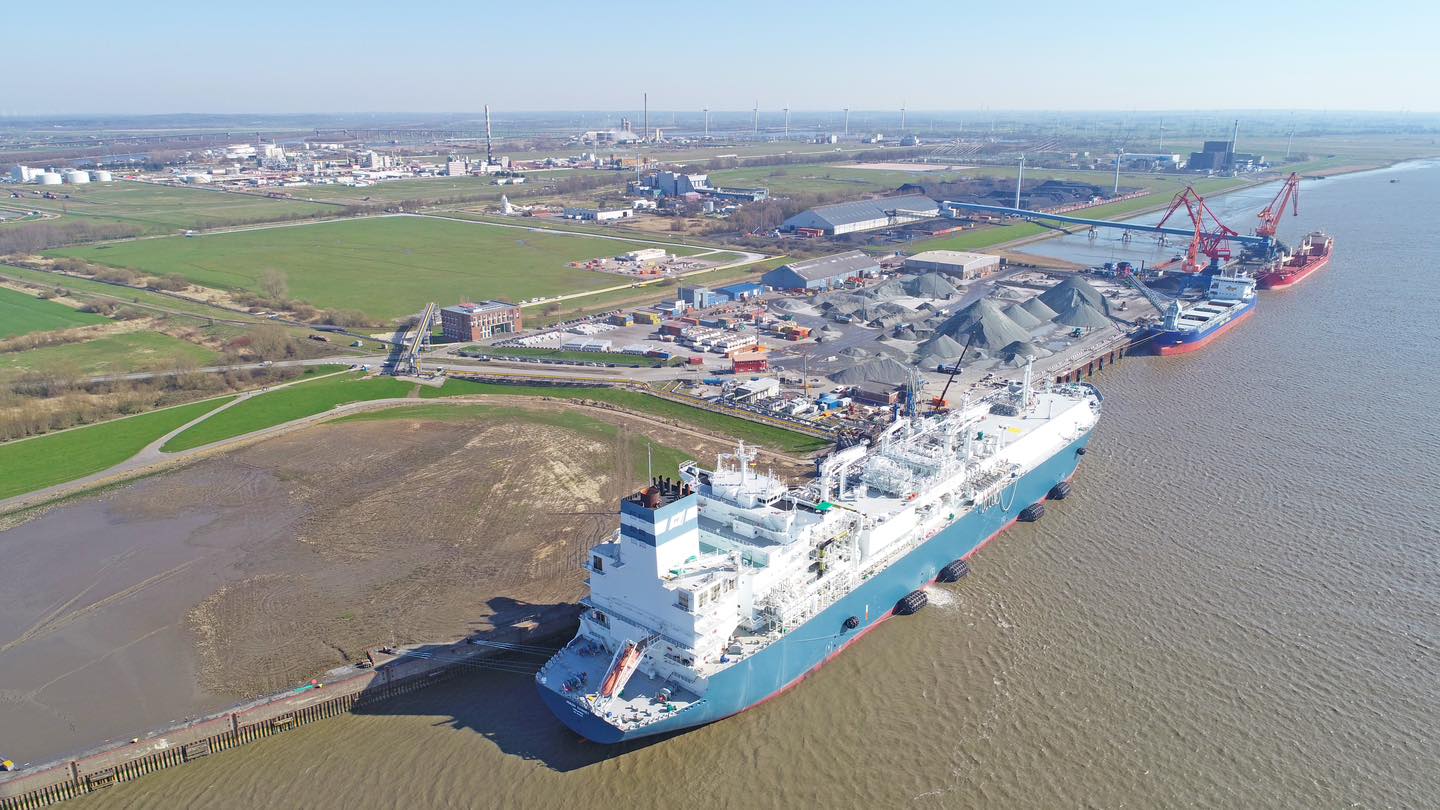Lithuanian LNG terminal operator KN has become the commercial operator of the Elbehafen LNG terminal in Brunsbüttel, northern Germany.
This marks KN’s second involvement in a German LNG terminal, following its role as the commercial operator of the Wilhelmshaven LNG terminal on the North Sea coast since autumn of last year, KN said in a statement on Friday.
Both of these facilities feature Hoegh LNG’s FSRUs which are chartered by the German government.
German energy firm RWE, which developed the Elbehafen LNG project with Hoegh LNG, Brunsbüttel Ports, and other partners on behalf of the German government, said in May that the FSRU-based terminal started commercial operations.
The 170,000-cbm FSRU Hoegh Gannet, which serves the Elbehafen LNG import terminal, received its first LNG tanker on February 14 from UAE’s Adnoc and the second tanker from the US on April 22.
RWE said at the time that the government-owned Deutsche Energy Terminal GmbH (DET) will handle the commercial operations of the FSRU-based LNG terminal, while Elbehafen LNG is responsible for the technical operations of the terminal.
KN’s growing LNG business
KN said int he statement it had secured a contract for the commercial terminal management services of the FSRU-based facility.
The services include managing logistics operations, gas dispatching operations, gas accounting and reporting, and other terminal operational services adapted to the customer’s needs, it said.
Darius Šilenskis, CEO of KN, said in the statement that yet another successful bid for the commercial operation of the German LNG terminal confirms that the decision taken more than five years ago to focus on the development of the LNG business on international markets was the right one.
“The growth of LNG terminal construction projects since the start of the Russian war in Ukraine has created an additional market for our services. However, we have been planning an ambitious expansion in the global LNG market long before the war,” he said.
To date, KN has contributed to more than 10 different LNG projects around the world, according to the CEO.
KN operates the FSRU-based LNG import facility in Klaipeda and is involved in other LNG terminal projects in Europe and Latin America.
Šilenskis noted that KN’s new long-term strategy for 2023–2050, approved in mid-June, also focuses on the development of the international LNG business.
“Leveraging their knowledge and expertise, the company is poised to extend LNG terminal development activities in growing markets and to actively seek additional new LNG projects in which KN would be selected as a consultant, an operator and, if successful, even a shareholder or investor,” he said.

